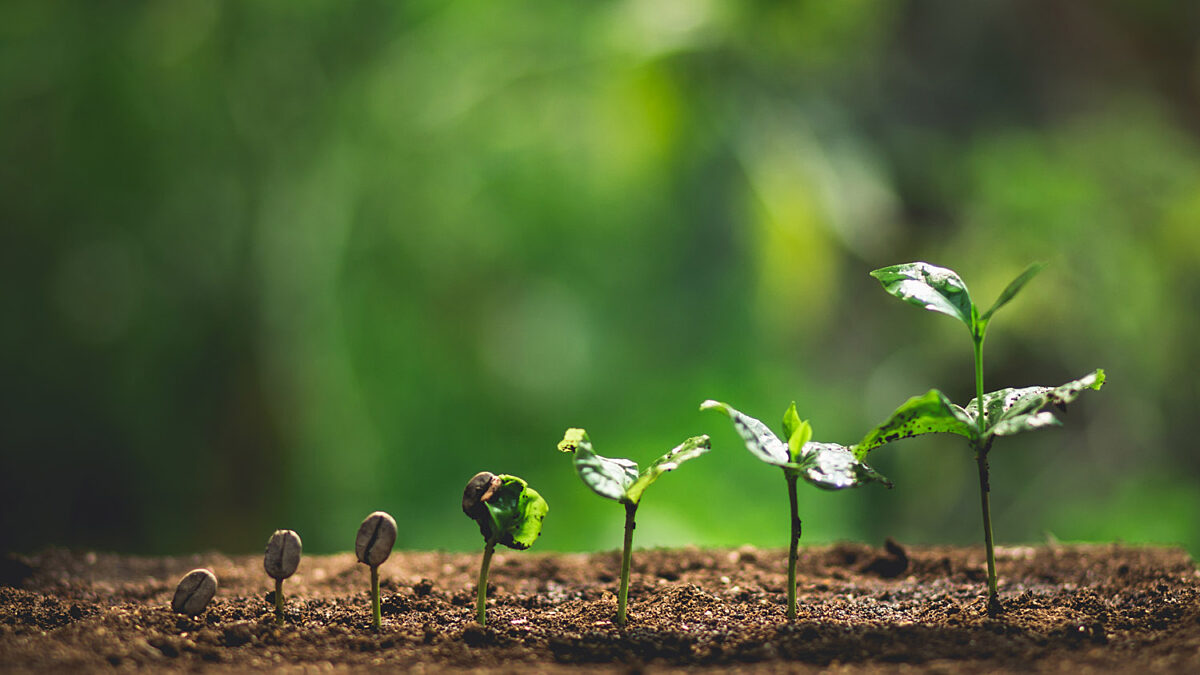
Learning to grow
By Bishop L. Jonathan Holston
“Consider how the wild flowers grow. They do not labor or spin. Yet I tell you, not even Solomon in all his splendor was dressed like one of these. If that is how God clothes the grass of the field, which is here today, and tomorrow is thrown into the fire, how much more will he clothe you—you of little faith!” (Luke 12:27-28 NIV)
There are many good reasons to prefer artificial flowers to natural ones. The best ones look incredibly lifelike. Even after months in a vase, they are always in full bloom; the leaves never grow limp. They are maintenance-free, requiring no water, no sunshine and no nutrition to keep looking beautiful. Of course, they will never die.
Yet there is one disadvantage to having artificial flowers—they do not grow. They stay the same forever. They will never die because they have never lived.
While there are many good reasons to prefer artificial flowers to natural ones, there is something therapeutic about planting a garden. As the Chinese proverb goes, “Life begins the day you start a garden.” It is in seeing the sprouts that emerge from germinated seeds; the care with which those young seedlings are transplanted, watered and tended as they grow. That feeling of the warm soil as you plant. Meticulously watching the weather to know whether or not it will rain. Removing weeds; checking for blossoms. Celebrating the growth over time. Gardening is a process filled with opportunities for both patience and celebration.
By now, in late summer, the seeds that were started in the spring have grown into plants, and the harvest has been plentiful. All the wondering and waiting has paid off.
As so often happens in a garden, there have also likely been surprises. Perhaps you found a watermelon that had grown undetected in a back corner. Or maybe you awoke to find a pest infestation that was certainly unwanted and unexpected. And so it goes, putting in the effort without knowing for certain what the outcome will be.
The work of gardening is humbling. Master gardeners know that you don’t actually grow the plants. You can only foster an environment in which growth can happen. You do your work, and the plants do their work. The success of the plant growing requires consistent nurturing of the plant’s environment. Gardeners are reminded constantly that we cannot control the results of our labor. Author and leadership expert Bob Johansen has described our reality in such a succinct way, namely, “The future will reward clarity and punish certainty.”
Thinking that we can know the future, or what will happen next, often makes us a laughing stock. Consider the last few years. Every time we think we are moving beyond COVID-19, a new variant emerges. So many plans that we have made have had to be postponed, cancelled or reimagined in order to follow through. Rarely have our plans commenced unchanged. Certainty is not a word often used in these days. Instead, we’ve had to lean into seeking clarity about what we need to do and where we need to go.
But how do we maintain focus on clarity rather than certainty? We are the people the world turns to for answers about faith. We are supposed to have all the answers. Or are we?
“I don’t know” is incredibly difficult for us, as human beings, to admit. But this is the first step to becoming teachable. Being teachable means having a desire to listen, learn and apply. And when we become teachable, we want to be part of conversations to learn more.
Proverbs 19:20 says, “Take good counsel and accept correction – that’s the way to live wisely and well.” Making peace with uncertainty keeps us grounded so that we can begin to move forward in the way that God is calling us to go, becoming teachable; open to the leading of the Holy Spirit.
What looks perfect in the artificial does not often look perfect in a live plant. But the live plant is real. It is living. The secret is in watching it grow, remembering that there is growth happening even when you cannot see it.
In the midst of this season filled with constant pivoting and so many surprising twists and turns, we have sought to maintain our focus on making disciples of Jesus Christ for the transformation of the world. Recognizing that the growth of disciples only happens through God’s work frees us instead to focus on nurturing the environments within our congregations and our communities. Even with all of the distractions and disappointments in the church and in the world, we can still find clarity about who we are and whose we are as children of God.
Rather than asserting deep, yet incomplete, knowledge, what if we instead were to acknowledge that we don’t, in fact, have all the answers? Each one of us has the opportunity to become teachable—willing to listen and learn. Willing to engage in courageous conversations with others. Growth is an indicator of living. How alive are you?
The French proverb teaches us, “Blessed are those who plant trees under whose shade they will never sit.” The seeds sown now will be entrusted to the future, may that be tomorrow, next month, next year or in the next generation. May the seeds we plant be those of faithfulness, commitment, integrity, patience and caring for the least of these. We plant these seeds now, trusting, believing and knowing that God is with us, guiding the growth until the time of harvest.